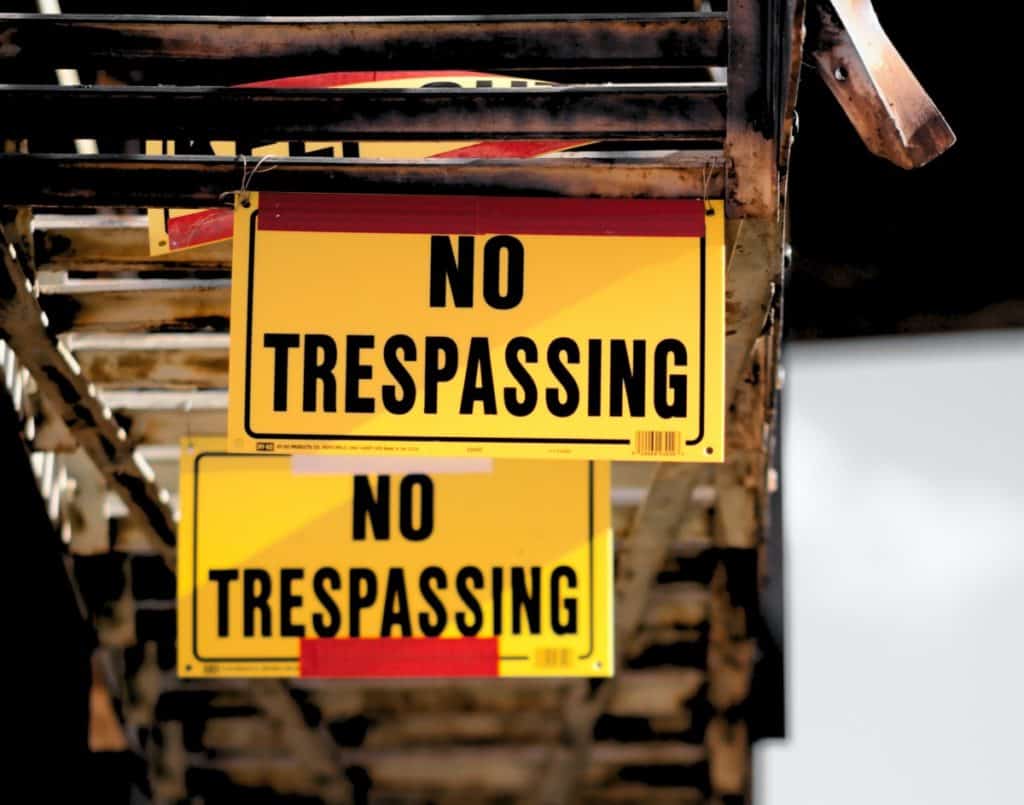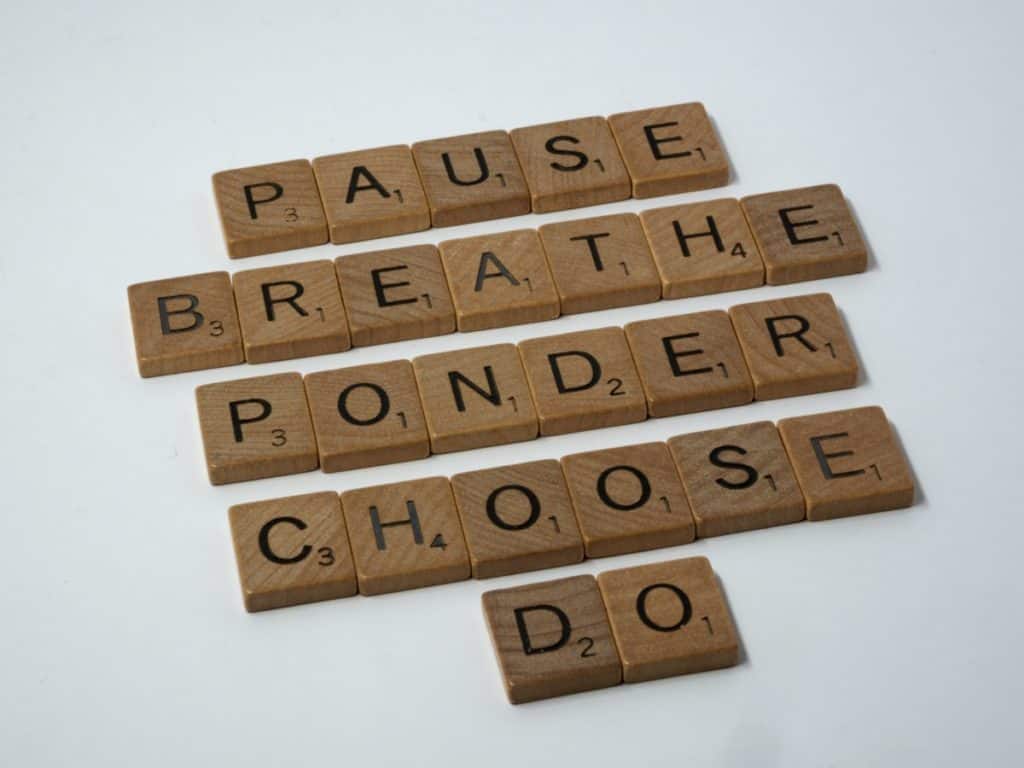In trying to be nice and helpful, we often miss the point of what it means to be nice and become a doormat to everyone who asks for a favor. Although saying yes is a habitual, but learned behaviour, the more yes you say to everyone and anything, the more no you tell yourself. While saying no does not require an essential life skill, you can change your life completely by learning how to say it.
Saying no allows you to save two life essentials; – Time and your own values. A minute here and a minute there will culminate into hours being busy at someone else’s task. Hence, you exchange your precious time by saying too much yes for your own good. The recipe for personal disaster is to say yes every time. More than helping yourself, saying no is an effective way to save your relationships and avoid resenting people. According to Greg McKeown, if you do not prioritise your life, someone else will. Always saying yes means you will have less time for yourself. It also opens you up to exploitation by people you want to be nice to. In reverse, saying no means you will have more time for yourself. Hence, saying no is an essential life skill that you should learn. The more you practice saying no and setting boundaries, the more you will become more comfortable and authentic. By implication, when you do say yes, it must mean that it is a genuine expression of what you actually feel.
The Power of saying NO
Successful people learn to say no. Notice, I said, “learn.” The word “no” is not an intrinsic or natural value. Instead, human psychology is always wired to want to be on the better side of people. However, an understanding that you are not responsible for people’s misery or their negative feelings will help you to say an emphatic yet subtle No. As far as healthy and productive living is concerned, you can’t afford to give out too many Yes.
The central dilemma of the human world is the decision between yes or no. However, “yes” has won the race for so long because forces of “no” prevent you from giving in to impulsiveness. For example, instead of deciding to give a direct No, you are forced to look to other parts of your brain for guidance. Prompted by good reasons all around, the outside world encourages you to say Yes. Besides, we live in a world that we think is designed to give us what we want; hence, the more reason why we should say no. You will soon discover that saying no is the new yes as it will help you to focus only on the essential. This is a part of being an Essentialist.

The psychological difference
The importance of saying no to your impulses cannot be overstated. Books like How to Say No Without Feeling Guilty and The power of No clearly defines why. Behavioral Scientist Daniel Kahneman, in 2002, won a Nobel Prize for his work on “saying no to impulses.” Likewise, Richard Thaler won another in 2017, and a host of other researchers have picked up where they left. The bottom line for every one of those authors has always been the same “you have impulses, think before you say yes. Instead, say no.”
Steve Peters, another psychologist, gives a clear metaphor to describe the impulsive part of the human brain. He labeled it the “Chimp.” Besides the chimp, everyone has an inner human, the limbic system, where the emotions sit deep. The inner human is located in the prefrontal cortex. According to Steve, the chimp makes snap decisions and often executes thoughtless judgment. It was thanks to this part that we were still chimps during the evolution.
To him, when humans were chimps, you fought when you needed to, and would kill if it was necessary. On the other hand, the prefrontal cortex is what differentiates humans from chimps. Not only those, it houses your emotions and is also often referred to as the soul. It is that part of you that always wants to look for evidence of justification for your action. However, in a battle for strength, the inner chimp is more powerful than the inner human. Follow, and you’ll get it.
How it works
When information reaches the brain, the chimp receives the information first since it is more powerful. However, since it gets the first dribble of the ball, it makes fast and spontaneous decisions. When it sees something it wants, it voices the yes louder than the no. Why? Because saying no requires careful thought patterns and extensive deliberation. Why not say yes, since it is a simple alternative?
Apart from the forces within, the world around is designed for the chimps in us. Social media is designed for the chimps. Imagine someone comes to you with an invitation to attend a party. The chimp in you calculates the math to figure the type of happiness to derive from the party. You begin to think about the guests and migrate to wonder what you’ll wear in no little time.
On the other hand, the prefrontal cortex understands that you should be doing something else besides partying at that time. Unfortunately, you are not able to will yourself to defer the perceived happiness and persuade yourself to say no. We are hard-wired to give fast and snap responses in response to a salient stimulus, even if it is to our disadvantage.

Psychology explained in English
If you had a hard time keeping up with the frontal cortex and chimps’ psychology, you should read it in English you’ll understand. Our world exudes an insatiable appetite and the fear of missing out. Hence, it feels natural to fire an instantaneous Yes reply to messages and requests that should warrant a No. Truth be told, we don’t do ourselves any favour by saying Yes every time. No doubt, it feels weird and awkward to say No. However, the more you avoid saying No, the harder you make things for yourself.
If you’ve been around for a while, you must have experienced a downright awkwardness when you said No. There is this feeling of a swell of anxiety when you reluctantly say Yes. Although your gut is screaming No, you can’t bring yourself to say it not to disappoint, but to please people. Besides, saying Yes always looks more comfortable and more satisfying in the short term. If your bandwidth doesn’t cover the “I won’t do it” station, chances are that you’ll get mad at the situation, the person that requested the favor, and at yourself for obliging.
A cure from distractions and temptations
Saying NO to unnecessary commitment allows you to recover from daily distractions. Here is a common dilemma that you should be familiar with: Say, a friend comes to ask for your help for 15 minutes, and you decide to help him out. Although he asked for 15 minutes, he ended up using One hour. Instead of feeling good about helping him, you will resent yourself because you could have spent the extra 45 minutes doing something more productive. Hence, although you helped him, you are further behind on productivity.
But the woes don’t end there. Soon afterward, another friend approaches you to make another small request, and being so nice; you indulge another one hour of your time. Instead of being an hour behind schedule, you are now two hours further behind on your responsibility. Sadly, it becomes a pattern. In a bid to be kind and friendly, you assume the role of the universal supreme being with all solutions. Never assume the role of the go-to-person that people seek out only to ask for favors.
More than yourself and productivity, you will end up resenting the same people you had blessed with your help. By implication, you are losing on two fronts; you get angry at yourself for burning time, and you resent the people you helped. The simple truth is this; every time you say Yes to something, you are saying No to time, and your own values and essentials.
Newton’s third law of motion dictates that, for every action force, there is always an equal reaction force. By saying Yes to people who eventually took more of your time than you promised, the reaction was that you automatically said No to other things that needed your attention.
The game of time and reply
If you fail to guard your time and priorities, no one will. Look at it this way; No one will and can take care of your business as you will. Hence, if you spend too much time taking care of someone else’s business or something else that doesn’t really matter, you automatically forfeit your needs. When you are done, you are either too tired or too demotivated to pay attention to your actual needs and tasks. At this stage, it will be impossible to help anyone, even yourself.
The rule of self-preservation as it concerns giving replies is to take care of yourself first. After that, you can help others if they are within reason and not at your detriment. At this point, you will probably start wondering whether you are smart or selfish. It looks selfish; however, it is not.

There is no shame in saying NO
Simple as that. You shouldn’t feel sorry for turning someone away. By implication, you don’t owe anyone an excuse or explanation of why you should validate your No. This is how it works; when someone asks for a favour that will inconvenience you and you say No, they go further to ask why you cannot do it. When you start making excuses, they will appeal to you and explore the part of your excuse that appears weak. Eventually, you will end up giving in.
When you think about it, you are you, and are responsible for the way you choose to do your things. Regardless of the excuse or explanation, your prerogative is that it will affect your time and energy; hence, it is not worth doing. That is all the reason you need. Note, the emphasis is that the task they are asking for will force you to say No to another more important task. Hence, more than the pleasure to satisfy, you should rely more on your intuition, conscience, and reasoning.
Saying No is a sign of respect. If you say Yes too many times than you mean to, you risk building resentment against a person. An attitude like this can negatively affect your relationship. Hence, when you tell someone No, you are honest and authentic for the sake of your relationship. An act like this can inspire others to set similar boundaries in their life and prioritize themselves before others.
No makes room for more Yes
When your schedule is packed and time becomes an invaluable asset, you should say Yes to only the things that matter, the essentials. If you don’t love it or want to do it, it is not worth doing. You must give your life the attention it deserves; hence, your YES should be treated as a rare commodity. However, it won’t be so valuable until you learn to say No. Think of it as a currency that you can either save or invest in more important decisions.
Saying No is standing up for and to yourself
You won’t always say No to people. In fact, you will often need to say No to yourself. Unlike saying No to people, this can be hard to perfect. For example, try refraining from hitting the snooze button every morning and find out how easy it is. Have you? How easy was it? Most times, you need to will yourself against your heart’s desire and stand up to yourself.

Why Yes weighs more than No
If saying No promises so much positive impact on a relationship or your life in general, why do people find it difficult to say No?
A coping mechanism against emotional bullying
Bullying comes in many forms. While some will yell, swear, and threaten you, others are more subtle in the form of manipulations. Another reason presents itself in the form of trying to avoid conflict. The truth is, it is sometimes not wise to avoid inevitable conflicts if harmony is difficult to achieve. More so, if it is to protect yourself from bullying. Hence, when the time arises, don’t say Yes to attempt to avoid a confrontation. When you see emotional bullies for what they are, you won’t fall for their manipulations, but will make a resounding No every time in order to say Yes to your own mental health.
A way to build self-esteem
Lack of self-esteem is another reason why many people say Yes more than they should. People in this category believe that they are only valuable when they give their time to others. To make people like us, we often don’t want to say No. In contrast, people won’t respect you when you are a doormat. True, everyone wants to feel appreciated. However, don’t succumb to rush others and undermine your needs. You are valuable when you help people without putting your life and needs on hold.
A way to avoid looking selfish
There is a general notion that society has engraved in us to think people are selfish once we cannot have our way with them. As a result, many people adopt a mantra of constant Yes, to prevent others from deeming them selfish. In a situation like this, chances are that you will feel remorseful after saying No to someone. However, standing up for yourself and your interest is appropriate. You are not obligated to shield anyone from feeling disappointed when you decline their request. Don’t give in to avoid upsetting people, provided you say it respectfully.
A way to fake success
People often tend to say Yes to too much work. If you’ve ever worked on a task, either at home or at your workplace, chances are you’ve experienced the stress of gasping over too much. Whenever this happens and we feel overwhelmed, we typically respond by not doing a very good job, or not anything at all. Your false belief of being successful is believed to be equal to doing a lot, however, that is not the case. In order to be successful, you actually and absolutely need to say NO. There will only be a fair amount of things you can do. While juggling your work and personal life, you cannot do too much if you want to live a stress free, productive and happy life. According to Greg Mckeown, the only way to be the most focused, motivated and productive, is to find out what’s the most essential to do. Simply eliminate and say No to everything else.
You should not feel guilty for turning people or tasks down. When you start feeling otherwise, remind yourself how many times you’ve said Yes in the past. If there was nothing selfish about that, there shouldn’t be anything selfish about now.

How to say no without feeling like an Idiot
The right words make it easier to say No. In other words, people won’t take offense when you carefully select your choices of words.
Speak directly
The most straightforward way to avoid a favour you don’t want to render is to be direct with them as honest as you can. Don’t stall for time and look indecisive. On its own, stalling with your reply is disrespectful. There is the place of asking for more time to think over the request; however, you should provide direct answers to the one you can on the spot.
There are two approaches to saying a direct No. One is to say it without giving excuses, and the other is to explain your action.
Saying no without an explanation
The secret to effectively utilising this approach is to be brief with your No and not brusque. While speaking directly, don’t make complicated excuses for it. Honesty and brevity will help you stay focused on your priority. Giving drawn-out and long explanations often lead to apologizing for your action to sound convincing. On the other hand, it is better to communicate a straight No-response than to leave the person hanging.
For example, instead of saying, “I can’t help with that”,” Say, “Sadly, I’m afraid I can’t help with that.” The difference between these examples is the use of “sadly.” Another could be; “Thank you for choosing me, but I can’t take on more work at the moment.” From another perspective, although the answer does not satisfy the recipient, they will understand that it brings you no to turn them away. This is also something you can implement when it comes to task you think you have to do in order to move forward in your work; “Is this something that is essential for my success in work or business right now, or can it wait until I have more time?”.
Saying no with an explanation
Sometimes, when the situation calls for it, you need to say No and give your reason for saying it. For example, say a friend invited you for a trip to the Bahamas. You can reply; “A trip to the Bahamas sounds fun, thanks. Sadly, I am busy coordinating my sales, and I won’t have time to swing by”. The extent of how much reason you give for your No depends on your preference.
When it comes to saying No with an explanation, say it with an explanation and not with an excuse. The reason is that inventing excuses for your unavailability won’t fool anyone but diminish the power of your No. Say, someone asks you to help with homework, you can give a straight No without making excuses. If you replied, “I can’t, I’m currently playing a game,” he can reply, I’ll just drop it for you to attend to when you are done with your game.” By implication, you will be caught in the loop you’ve been trying to avoid. Don’t lie to cover for your unavailability.

Say No with a compliment
Cushioning your No with a kind compliment is a way to make the recipient feel good regardless of the rejection. For example, “This sounds like a fantastic idea, but I’ll have to pass”. (You can add, since we are short on staff, if you want to give a reason.) Nonetheless, thank them for considering you, but it is just not a good fit for you. The idea is to make the person feel good with a genuine compliment.
Use another word besides “no”
You can pass a clear message of your intention not to help without saying “no.” More like softening the blow to make the effect less offensive. This approach is best used when you don’t want to say an immediate No, but want to postpone the answer till another time. For example; “Your point about the task is well taken, but needs reevaluation. Why don’t you come by my office next week so we can talk about it?”
You are not stalling when you ask a requester to check back later. It removes the pressure from you and transfers it back to them. This approach is ideal in an environment when you don’t want to say Yes on impulse because the matter warrants more deliberation. Hence, although handy, you should use this approach sparingly.
Offer an alternative
In situations where the recipient could use help, you can reschedule to fit it into your schedule. Hence, although your answer is No, you can suggest another option. For example, “I can’t do this for you now, but I’ll be happy to reevaluate it in a month”. Or “I can’t take on mentees, but my colleague might have worthy insights. May I introduce you?” This approach lets you offer an explanation and an alternative in a go. Although it is not an obligation, it helps to express yourself with kindness.
Be courteous and resolute
Pushy requesters won’t take no for an answer. Therefore, you need to be as emphatic as you can with your no. However, you should be courteous, or your incivility will affect you later.
Say NO with your body
Say No with a calm and even voice. However, the voice must be clear and firm. When you sound confused, emotional, and upset, you will be exploited easily. Hence, you must stay calm during the conversation. Use assertive body language and stand tall. Maintain eye contact, and don’t fidget with your hands or jewelry. If you can’t do it, don’t apologize too much for your decision.

Healthy things to say NO to
- Lack of boundaries: Boundaries are essential for healthy communication and respect. Whether to yourself or someone else, set boundaries that you won’t break for anything. People-pleasers have a hard time setting boundaries. Hence, to build your confidence to say No, set boundaries.
- Inauthenticity: Avoiding saying No to make you feel accepted. Don’t suppress your needs under the guise of pretence.
- Self-sacrifice and martyrdom: Say No to anything that will cause you to sacrifice your time, energy and essentials. Not just this, the narrative is different when the thing you oblige yourself to do will backfire on you. Although there must be a compromise, don’t say Yes and lack the genuineness that makes you unique.
The power of NO – A learned behaviour
The purpose of saying No is never to hurt others or yourself. Instead, it is an essential practice in the pursuit of happiness. Although saying Yes is a strong habit that is close to second nature, saying No is a learned behaviour. As a result, you need to purposely pause the habit of saying immediate Yes to request and think about why you should say it. You deserve to be happy without feeling guilty for it. Hence, don’t let anyone take you on a guilt trip because you turned them down.
